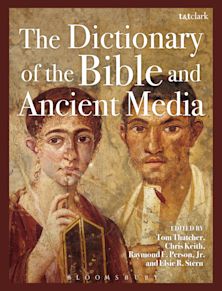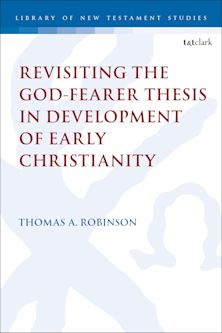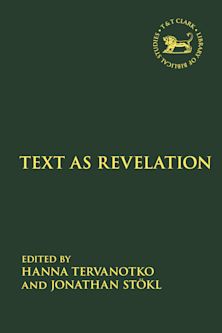- Home
- ACADEMIC
- Biblical Studies
- New Testament
- Luke: A Social Identity Commentary
You must sign in to add this item to your wishlist. Please sign in or create an account
Description
In this commentary, Robert L. Brawley provides comprehensive coverage of issues and concerns related to Luke from the perspective of social identity. He argues that the Gospel of Luke is strongly concerned with the formation of identity from the very start of the text, which aims at the creation of a socially responsible community in continuity with that community's collective past.
Brawley establishes a theoretical framework that focuses his interpretation - ranging from the narrative world and sociological issues to postcolonialism and hierarchies of dominance - and uses these perspectives to provide a clear overview of historical and critical issues related to an understanding of Luke. He then provides a thorough outline of and commentary on the text of the Gospel. Brawley's engagement with the text serves as an invaluable resource for scholars, students, clergy, and others interested in their own discoveries of the resources of Luke.
Table of Contents
Preface and Acknowledgements
Part 1 Introduction: Methods and Contexts
I. Fictive Qualities of Narratives
II. Author, Audience, Composition
III. The Narrative World
IV. The Cultural Encyclopedia
V. Sociological Approaches
VI. Social Identity Theory
VII. Philosophical Reflections on Identity
VIII. Feminism and Postcolonialism
IX. Hidden Dimensions of Hierarchies of Dominance
X. Social Identity, Christology, and Discipleship
XI. Modesty in Interpretation
Part 2 The Gospel of Luke: An Outline
Part 3 Commentary
I Prologue
II Luke 1:5 -2:40 Births and Early Development of John the Baptizer and Jesus
III Luke 3:1-22 John the Baptizer
IV 3:23-4:13 Jesus's Beginnings
V Luke 4:14-21:38 Jesus's 'Good-Newsing' of the ßas??e?a of God and its Extension
VI Luke 22:1-24:53 Jesus's Passion, Resurrection, and Ascension
Bibliography
Index
Product details
| Published | Feb 20 2020 |
|---|---|
| Format | Ebook (Epub & Mobi) |
| Edition | 1st |
| Extent | 248 |
| ISBN | 9780567693228 |
| Imprint | T&T Clark |
| Series | T&T Clark Social Identity Commentaries on the New Testament |
| Publisher | Bloomsbury Publishing |
About the contributors
Reviews
-
Robert Brawley provides an invaluable contribution to Lukan scholarship by offering a reading of Luke's text through the lens of social identity theory; such a lens not only illuminates Luke's Gospel, but offers a methodological framework for illuminating other New Testament texts as well. I heartily recommend this commentary to the specialist and non-specialist alike.
Brittany E. Wilson, Duke University Divinity School, USA
-
A fresh, stimulating construal of Luke's Gospel; drawing on social identity theory but firmly anchored in a nuanced understanding of narrative analysis as practiced by those who see texts as social constructions of reality, rather than mimetic representations of some presumed 'ontic reality'. This commentary's interpretations focus on the interplay between the language of the text and the complex social dynamics reflected in the text, and how this interpretive calculus functions in forming the identity of those who produced these texts and heard them read or performed.
Carl R. Holladay, Emory University, USA
-
Identity and collective memory help to illumine, but do not overwhelm, this reading of Luke's Gospel. Instead, we are treated to an interpretation of Luke that foregrounds Luke's narrative even while it attends to the ancient cultural encyclopedia and is shaped by contemporary interests. Robert Brawley's important contributions to Lukan scholarship span some three decades. What a gift, then, that he has written this full commentary on the Third Gospel.
Joel B. Green, Professor of New Testament Interpretation, Fuller Theological Seminary, USA
-
Robert Brawley has written a book that practices exactly what historical-critical exegesis should be for. His 'Social Identity Commentary' on the Gospel of Luke does not confine itself to a mere reconstruction of the past, but it unlocks the text in a way that makes it speak to today's readers. It enables them to become aware of their own social identity, and by this they are drawn into Luke's story of Jesus. Due to its richness of exegetical suggestions and hermeneutical insights, this commentary represents a very promising beginning of a highly interesting series. It is to be hoped for that it will find many readers.
Michael Wolter, The University of Bonn, Germany

ONLINE RESOURCES
Bloomsbury Collections
This book is available on Bloomsbury Collections where your library has access.



































